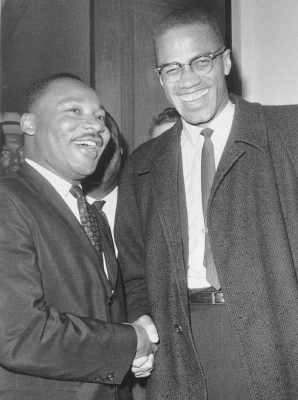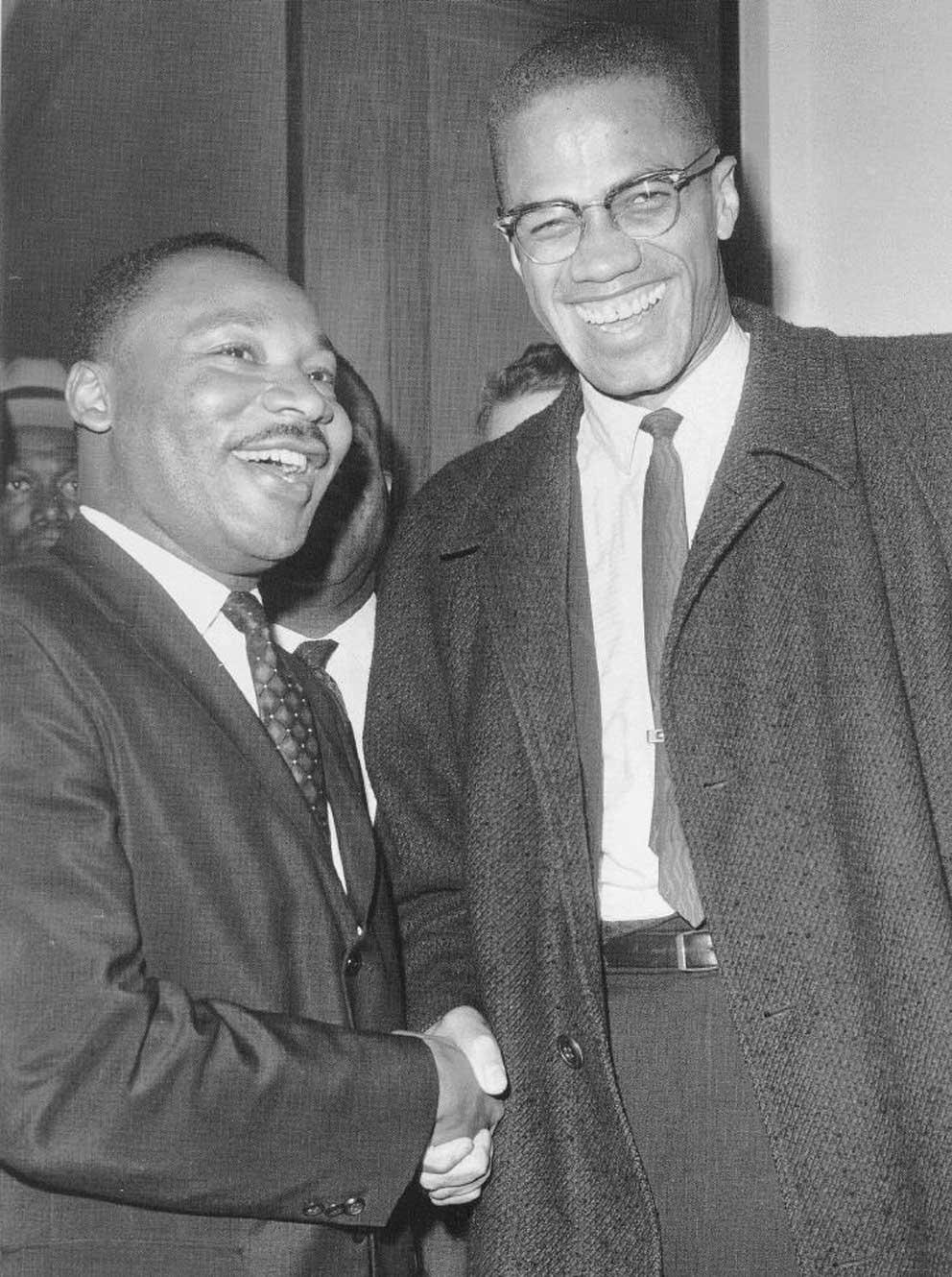 The militancy and radicalism of El Hajj Malik El-Shabazz (a.k.a. Malcolm X) has made his legacy harder to hijack by those of the status quo than that of Dr. Martin Luther King Jr., but that hijack is being attempted nonetheless. It has to be. Learning about the life and legacy of Malcolm X may be the most widely cited starting point of left politicization of youth worldwide, particularly for urban youth of color and more particularly for those of African descent. The life of Malcolm was a lesson for all, a lesson rich and nothing short of admirable. His exceptional life made him an inspiration to so many — and a threat to others.
The militancy and radicalism of El Hajj Malik El-Shabazz (a.k.a. Malcolm X) has made his legacy harder to hijack by those of the status quo than that of Dr. Martin Luther King Jr., but that hijack is being attempted nonetheless. It has to be. Learning about the life and legacy of Malcolm X may be the most widely cited starting point of left politicization of youth worldwide, particularly for urban youth of color and more particularly for those of African descent. The life of Malcolm was a lesson for all, a lesson rich and nothing short of admirable. His exceptional life made him an inspiration to so many — and a threat to others.
On February 21, 1965, just when Malcolm was about to open his speech in the Audubon Ballroom in New York City, he was assassinated. That makes today the 48th anniversary of his murder. Although there is still controversy about who was behind his assassination, many things are clear.
The facts of the murder will be shared and discussed this evening from 6:00 PM to 9:00 PM in Howard University’s Blackburn Center, Room 155, at the forum, The “Black Messiah” The Life And Assassination Of Malcolm X Who Killed Him And Why? The event, spearheaded by Coalition on Political Assassinations in co-sponsorship with a host of other organization, will feature an array of extremely fitting speakers.
A fact more generally known is that President Lyndon B. Johnson and FBI Director J. Edgar Hoover deemed Malcolm’s revolutionary internationalism and domestic radicalism subversive and threatening to the U.S. government. Malcolm brought the plight of African people in the United States to the world stage, and clarified that our problems were not merely about civil rights but human rights. He wanted to take our issues to the world court, something that would have embarrassed the U.S. government as it was positing itself as the lecturer and enforcer of freedom and democracy around the world.
After returning from Africa and further solidifying his Pan-African perspective and concrete connections with leaders there, Malcolm started the Organization of Afro-American Unity (OAAU), modeled after the Organization of African Unity (OAU). This organization was meant to create a practical bridge between those on the African continent and people of African descent in the United States. As African people had been forcibly disconnected physically and mentally, this bridge reflected a profound political evolution that continued the ideals of the Garvey movement.
If in greater unity there is greater strength, Malcolm’s moves indeed represented a threat to those who preferred the continued oppression and disempowerment of African people worldwide. This made him a target of both the FBI and CIA.
Public documents now show that the FBI and its program COINTELPRO wanted to “…prevent the rise of a Black ‘messiah’ who could unify and electrify the militant Black nationalists movement. Malcolm X might have been such a messiah; he is the martyr of the movement today” (FBI Memorandum, March 4, 1968).
After exposing a hypocritical and immoral indiscretion of his former leader in the Nation of Islam (NOI), Elijah Muhammad, Malcolm X incurred the dissatisfaction (to put it mildly) of Elijah Muhammad and the wrath of many of the leader’s loyal followers. This included the well known Malcolm X protégé, Louis Farrakhan, who publicly made inflammatory statements implying Malcolm should be killed for “betraying” Elijah Muhammad.
Even before Malcolm was officially out of the NOI, internal resentment against him was deliberately and calculatedly exacerbated by the FBI through fake letters sent and made to seem as though they were internally written. This was a common practice against organizations targeted by COINTELPRO. After Malcolm left the NOI the FBI, in coordination with the NYPD, was able to assign undercover agent Gene Roberts to infiltrate the new organization formed by Malcolm and work his way up to becoming Malcolm’s body guard. Roberts was to later do the same thing to the Black Panther Party in New York, which revealed his true identity 6 years after Malcolm’s assassination in a trial to railroad the Panther 21 into prison for allegations of plots to commit terrorist attacks.
Initially very critical of Dr. Martin Luther King Jr., Malcolm eventually gained respect and admiration for Dr. King and began a dialogue about how they could begin combining forces. They had even gone as far as to agree that Dr. King would work on galvanizing his strength and influence in the South, while Malcolm would work on the North, to in time bring both forces together. While the FBI maintains that there was no direct order given by it to assassinate these two great leaders, it is folly not to contextualize their culpability. The FBI’s surveillance, meddling, and instigation of lethal tensions around the lives of the most respected and high profile leaders of the time is undisputed. These were leaders they considered a threat to national security and wanted “neutralized.”
But while murdering Malcolm deprived us of anything more he could give in life to the struggle, it also resulted in either unintended or unavoidable consequences for his adversaries. Malcolm’s life and legacy continue to be an inspiration for so many young people the world over and seems to grow with each passing generation.
As Marcus Garvey said, “You can kill the lion, but what will you do about the cubs?”
